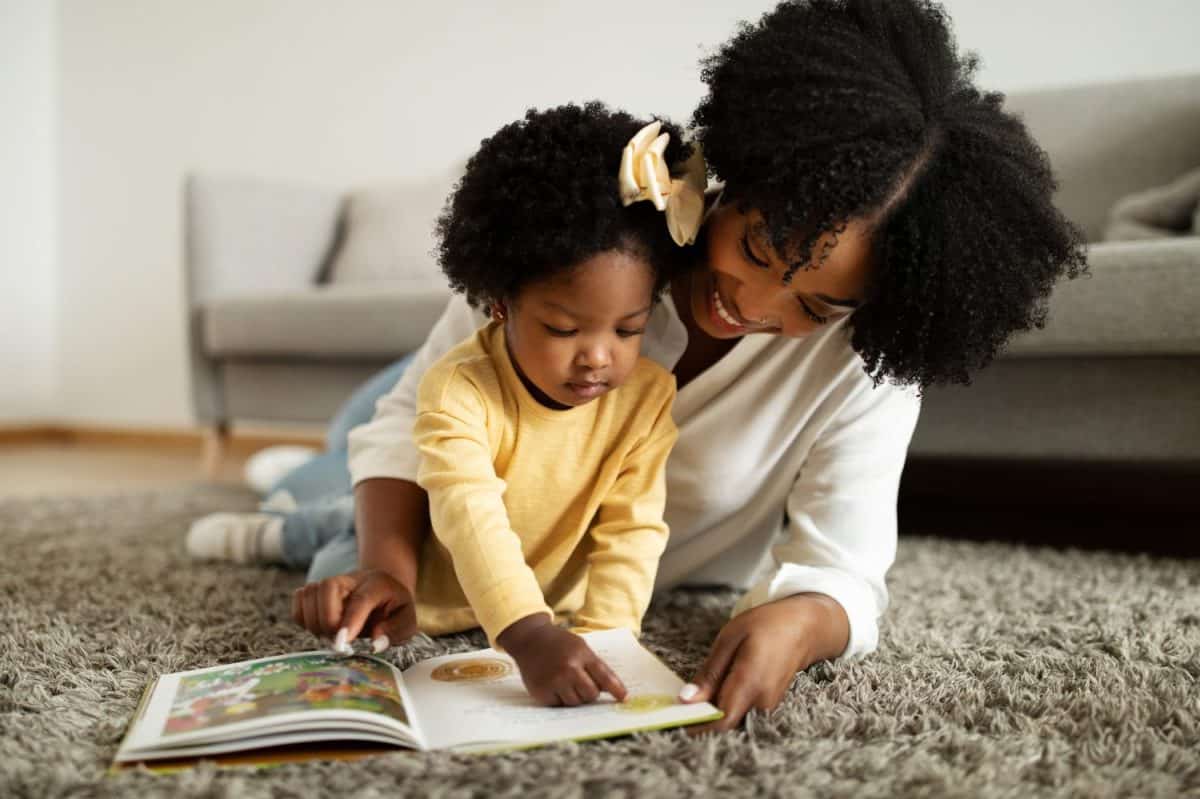Every child grows and learns at their own pace, especially during the early days of development. Not being on the same track as every other child doesn’t necessarily mean something is wrong, but even from a young age, you can notice the warning signs that your child may need speech therapy.
If you have concerns about your child’s speech development, it’s best to intervene earlier rather than later. Even if your child only has one or two of these signs, it’s better to look into it and then realize they don’t need assistance than not intervene and realize too late that they do. Here are 10 signs your child may need speech therapy.
Your Child Doesn’t Babble or Try to Talk

©New Africa/Shutterstock.com
Most children start babbling when they’re around 6 months old. While some babies might start babbling earlier or later, babbling is a good sign that they’re on the right track and learning how to make sounds independently.
Babbling and other similar vocalizations are an important way for infants to practice speech. When babies don’t babble by a certain age, this may be an indication that they need to see a speech therapist.
They Don’t Respond to Their Name

©BaLL LunLa/Shutterstock.com
Another milestone that your child reaches at a young age is being able to identify and say their own name. Most children between 4 and 9 months old recognize their name. However, by 2 years old, they should be able to identify themselves by name as well.
If you notice that your toddler doesn’t respond to their name or can’t say their name, this could be an issue with their speech. A child not responding to their name can also be a sign of autism, so it’s important to talk to a specialist about your concerns.
Your Child Has a Stutter

©Inside Creative House/Shutterstock.com
Stuttering is a type of fluency disorder that can impact children at a young age. Children who stutter have difficulty producing smooth words and sentences. While some children may develop a stutter later on, you might notice this issue as young as 2 or 3 years old.
It may seem like your child starts stuttering all of a sudden and they may seem uncomfortable when they try to say certain words or talk in a complete sentence. If you notice your child has developed a stutter, a speech therapist can help them develop strategies to cope with this and improve their fluency.
They Don’t Understand Basic Words or Statements

©Anna Kraynova/Shutterstock.com
Not only can your child not being able to communicate certain words be a sign that they need speech therapy, but if they don’t understand basic words or statements, this could also be a sign of an issue. Speech issues are different from issues with language delay, but in some cases, a speech disorder can prevent a child from understanding certain sounds.
An infant likely isn’t going to understand most words or statements they hear at first, but if your toddler still struggles to understand basic words or sentences, it may be time to reach out to a speech therapist.
Your Child Doesn’t Interact with Other Kids

©MR.Yanukit/Shutterstock.com
Not every child is outgoing or feels comfortable making new friends on their own. However, if your child struggles to interact with other kids entirely, this may indicate something going on with their speech.
It’s normal for many kids to be hesitant and shy even around other kids their age. If your child is between 2 and 3 years old and doesn’t interact with other children, it could be because they’re struggling to communicate.
They’ve Only Said a Few Words

©Nicoleta Ionescu/Shutterstock.com
There isn’t an exact number of words that children should be able to say by their toddler years, but there is an approximate number that shows they’re on the right track with their speech. Most children should be able to say at least a couple of words by their first birthday. By their second birthday, they should be able to put two words together.
If your child is 2 or 3 years old and has only said a few words, there may be something going on with their speech. Seeking out speech therapy for your child can benefit them and help address any issues they’re having with communication.
Your Child Struggles with Certain Sounds

©Antonio Guillem/Shutterstock.com
If your child needs speech therapy, there’s a good chance that they struggle with specific sounds. When your child is first learning to speak, certain sounds are harder for them to articulate than others, but if there are specific sounds that your toddler can’t pronounce, it may be time to seek out a speech therapist.
This is also true if you notice that your child is omitting certain sounds or syllables from words that they pronounce. Just because your child mispronounces a sound or two doesn’t necessarily mean something is wrong, but if you notice your child can’t seem to get certain sounds down over time, seeking help can benefit their speech in the long run.
They Dislike Social Situations

©A3pfamily/Shutterstock.com
Your child struggling in social situations is another sign that could indicate several issues, one of which is an issue with their speech. When a child needs speech therapy, they might struggle in social situations because they don’t feel comfortable communicating with other children or adults.
However, struggling in social situations is also a common sign of children diagnosed with autism. It’s important to consider what other symptoms are present, if any, and talk to your child’s pediatrician for a referral.
They Don’t Speak in Sentences

©fizkes/Shutterstock.com
Every child is a little bit different regarding how their speech develops and when they can speak in sentences. Most children start to put sentences together between the ages of 2 and 3.
While there’s nothing wrong with your child developing a little bit behind other children their age, it’s also important to address any issue with your child’s speech early on. If your child is 2.5 or 3 years old and still isn’t putting sentences together when they communicate, talk to a speech therapist about an evaluation.
They Struggle with Early Reading Skills

©Prostock-studio/Shutterstock.com
There are many skills your child will pick up on before they start reading and writing, but before they’re ready to start reading on their own, they’ll start to build early reading skills. These skills might look like mimicking the sounds or words they hear in books or even turning the pages in books.
There’s no rush for children to learn these skills, but if your child is around 3 years old and is struggling with some of these skills, they may benefit from speech therapy. By 2.5 years old, they should start to build some early reading skills, especially if you’re reading to them consistently.
The image featured at the top of this post is ©Andrii Spy_k/Shutterstock.com.
